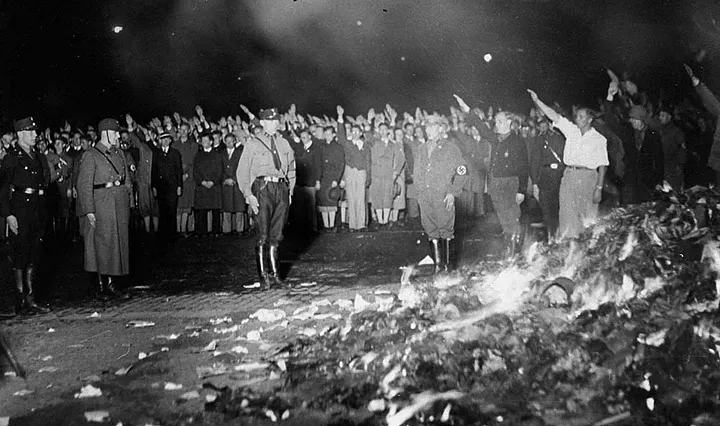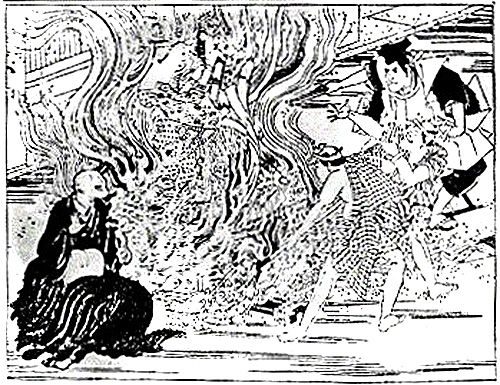Freud and Fahrenheit 451
Did Ray Bradbury secretly want to burn books?

“It was a pleasure to burn. It was a special pleasure to see things eaten, to see things blackened and changed. With the brass nozzle in his fists, with this great python spitting its venomous kerosene upon the world, the blood pounded in his head, and his hands were the hands of some amazing conductor playing all the symphonies of blazing and burning to bring down the tatters and charcoal ruins of history”. Ray Bradbury (Aka Guy Montag)
Once upon a time, long ago, there was a psychoanalyst who posited the principle of negation: That which is denied in consciousness is affirmed in the unconscious. He proposed the idea of the repressed unconscious as the subtext of the explicit text. In fact, he drew a wonderful analogy between literary censorship in authoritarian regimes, and the way this could actually aid the artist — Russian censors. (You know, you really can steal from the dead - Freud, because almost everyone has forgotten them and they can’t sue you).
Ray Bradbury’s book tries to contain a character named Captain Beatty who echoes the character of Shrike in Nathanael West’s Miss Lonelyhearts: An ironic, intelligent mocking counterpoint to the hero’s idealism. One who’s cynicism and arguments Montag cannot bear, because they match his own unconscious ambivalence. How does Montag react? He burns him to death.
I must admit to some sympathy towards Montag.
"The earth is degenerating today. Bribery and corruption abound. Children no longer obey their parents, every man wants to write a book, and it is evident that the end of the world is fast approaching."
— Ryan Haecker (@RyanHaecker) November 22, 2022
- Assyrian tablet, c. 2800 BC pic.twitter.com/x4uNiVkuG0
So, just to experiment, I will try something similar to what Susan Orlean tried. But unlike her, no books were harmed in this test.
Susan Orlean Burned a Book. It Was 'Excruciating.'

Here is my pure phantasy thought experiment. No books were harmed.
I walk into a musty old used bookstore filled with useless, unwanted orphans. I calmly insert my “seashells” (iPhone earbuds), select Mozart’s “Romance”, aim in the general direction of forward, and click the cool metal switch. (I will first drive out all the hippies, cats and all other small living things, bacteria, etc. After all, I am a good Buddhist).



Oof! 'Fahrenheit 451' does NOT age well.

Despite the critique above, the book does age quite well: as long as you have the proper historical perspective to go back to the earliest criticisms of the word, i.e. Socrates, Jesus, Zen Buddhism (Burning of the Sutras).
So how does Farenheit 451 end? There is an apocalypse of fire, and everyone must commit to memory the lost works of the written word. Montag's contribution is a partial memorization of the Book of Ecclesiastes (somewhat ironically), thus going back to a glorious pre-literate society that Socrates would have loved.






